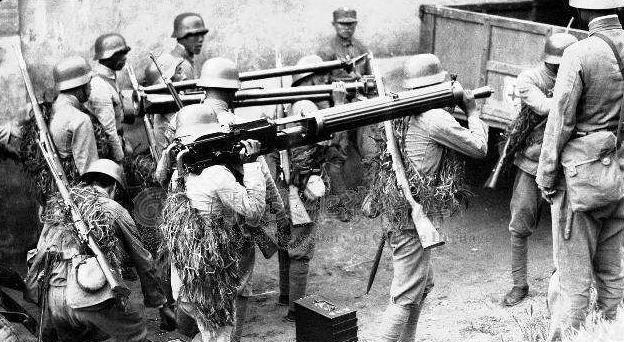During the 14 years of the War of Resistance Against Japanese Aggression, China killed only a handful of Japanese generals. There were two reasons for this result, one was that at that time, our weapons and equipment were inferior to those of the enemy, we were often in a passive position on the battlefield, we rarely took the initiative to launch an attack, and if we did not attack, we naturally could not kill the enemy; the second reason was that the general, as a senior commander, was generally not on the front line, so it was even more difficult to kill them. But in 1942, a company of the Nationalist army was very fortunate to kill a Japanese general in an exercise. Today we will tell this story.

By the time the War of Resistance Against Japanese Aggression entered 1942, Japan was no longer able to attack China, and at the same time they were fighting with the United States and Britain in the Pacific Theater. In this way, japan's troops were obviously insufficient, and in this case, the invading Japanese army was eager to force the Chongqing government to surrender, so as to draw troops from the Chinese battlefield to support the Pacific operation. To this end, the Japanese Chinese Dispatch Army Command held a military conference in Nanjing and formulated the "No. 5 Battle Plan", preparing to use heavy troops to launch a fierce attack on Chongqing, forcing the Nationalist government to surrender in one fell swoop.
The specific implementer of this battle plan was Tsukada, then commander of the Japanese 11th Army, Tsukada, a native of Ibaraki Prefecture, Japan, who graduated from the 19th Infantry Section of the Japanese Army Non-Commissioned Officer School. After that, he served in the Kwantung Army for a long time, participated in the July 7 Incident and the Nanjing Massacre, and his hands were stained with the blood of Chinese people. On December 18, 1942, after a military conference, Tsukada took a Japanese military airliner No. 025 from Nanjing to Hankou. In order to prevent accidents on the way, the Air Force had proposed to send fighters to escort the aircraft, but was rejected by the arrogant Tsukada attack, who did not pay attention to China's air defense forces at all.
At about 10:00 a.m., when Tsukada's landplane flew into the territory of Taihu County, Anhui Province, it was discovered by soldiers from the 9th Company of the 138th Division of the 48th Army of the Gui Dynasty stationed here, and this company happened to be conducting an air defense exercise. So the Japanese aircraft, which flew slowly at the edge of the low-altitude clouds, became the perfect target for the anti-aircraft machine gun platoon, and under the command of the company commander, the anti-aircraft machine gun quickly installed live ammunition and fired fiercely at the Japanese aircraft.
The bullet hit the fuel tank of the Japanese plane, and like a headless fly, it crossed Wangjialing in Tianjiatan, swooped down to the round peak of Jingzhu Chong Sunjiawan, crashed into an ancient pine tree, and fell into the mountain rock of Jinjiaya. Two pilots were thrown out of the cabin and fell to their deaths, and the other 9 officers were burned to coke, and the executioner of the Nanjing Massacre finally got his due! After Tsukada's death, the Japanese army carried out a retaliatory "sweep" of Taihu County, killing more than 5,000 Chinese soldiers and civilians and incurring a new blood debt.